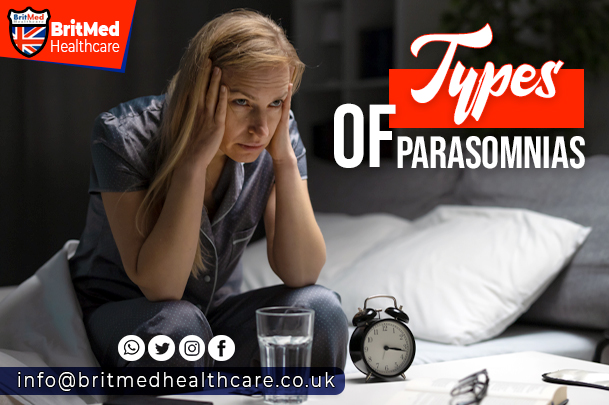Parasomnia: An Ominous and Mysterious Incident
Parasomnias are a group of sleep disorders that occur while a person is transitioning from being awake into sleep or out of sleep. These are usually bizarre conditions that may also be rather disturbing to both the patient and those around him. Causes, symptoms, and remedies from the world of ‘parasomnia’ are discussed in this article.
Types of Parasomnias
There are several types of parasomnias, each with its unique set of characteristics. Among the most commons are:
-Sleepwalking (Somnambulism): One of the most recognized forms, sleepwalkers get up during their sleep and start walking. They can engage in complex activities, like dressing and undressing, or maybe even go outside.
– Sleep-talking (Somniloquy): This is, as the name would suggest, the talking or uttering mumbling sounds while asleep. Sleep-talkers may speak words or phrases that are either intelligible or even nonsensical.
– Sleep-eating (Somnolentia): This is a phenomenon whereby in sleep, individuals eat or drink, mostly tremendous quantities of food items or greatly remarkable volumes of liquors.
– Sleep-driving (Automatism): This rather rare but dangerous condition involves the driving of cars in sleep, with most victims never remembering these occurrences.
They include Nightmares: Although not exactly a parasomnia, nightmares may be an opening condition that comes before other sleep disorders and may also be distressing to the individual experiencing them.
Causes and Risk Factors
The exact cause of parasomnia is not yet known, but research has outlined that it is related to a few factors, which include the following:
– Sleep disorders: Conditions like insomnia, sleep apnea, and restless leg syndrome can intensify parasomnia.
Genetics is also believed to have a part in developing parasomnia based on family history and genetic predisposition. Stressful events or periods of high anxiety may set off parasomnia. Sedatives and antidepressants are said to be two major classes of medications that may make a person develop parasomnia. Symptoms and Diagnosis Parasomnia symptoms may differ from one type of disorder to another since there are several types of parasomnias. However, common symptoms include:
They include the following:
- Sleepwalking, talking, eating, or other unusual activities during sleep.
- Memory loss: An individual may have no recollection of events in their sleep.
- Parasomnia interrupts usual sleep and can lead to fatigue and other associated problems.
Diagnosis This usually includes a detailed check-up by a physician that may involve the following:
- Medical history: A complete medical history and sleep patterns of the individual.
- Sleep diary: One can maintain a sleep diary to record the patterns and behaviors about sleeping, which will help in understanding the possible triggers.
- Polysomnography: Sleep study to monitor brain waves, heart rate, and other physiological functions during sleep is a way.
Treatment options Typically, treatment combine keys lifestyle changes and behavioral therapy with medication. Strategies may include:
- Cognitive-behavioral therapy (CBT): A type of therapy that helps individuals identify and change negative thought patterns and behaviors.
- Relaxation techniques such as deep breathing, progressive muscle relaxation, and meditation help to reduce stress and anxiety.
- Sleep hygiene by maintaining sleep schedules, avoiding caffeine and electronics before bed, and creating a sleep-conducive environment all improve the quality of sleep.
- Medications in some cases, if prescribed, may also help relieve symptoms.
Parasomnia is most often multifactorial and complex, and much information is to be searched to achieve an adequate understanding of its causes, symptoms, and treatment possibilities. In spite of its distress, there is hope for it to be successfully managed and treated. Overall, its periodicity and intensity may be greatly diminished with health professionals’ support and lifestyle modification.
References:
Parasomnias: Causes, Symptoms, Types & Management (clevelandclinic.org)
Parasomnias: Understanding and Managing Distinct Types (sleepfoundation.org)
Parasomnias > Fact Sheets > Yale Medicine
Websites:
Britmed Healthcare: https://britmedhealthcare.co.uk/
Nightingale Hospital: https://www.nightingalehospital.co.uk/
You can also book on Top Doctors UK Contact us on WhatsApp 08009708017
Top Doctors: https://www.topdoctors.co.uk/doctor/ahmed-el-missiry




